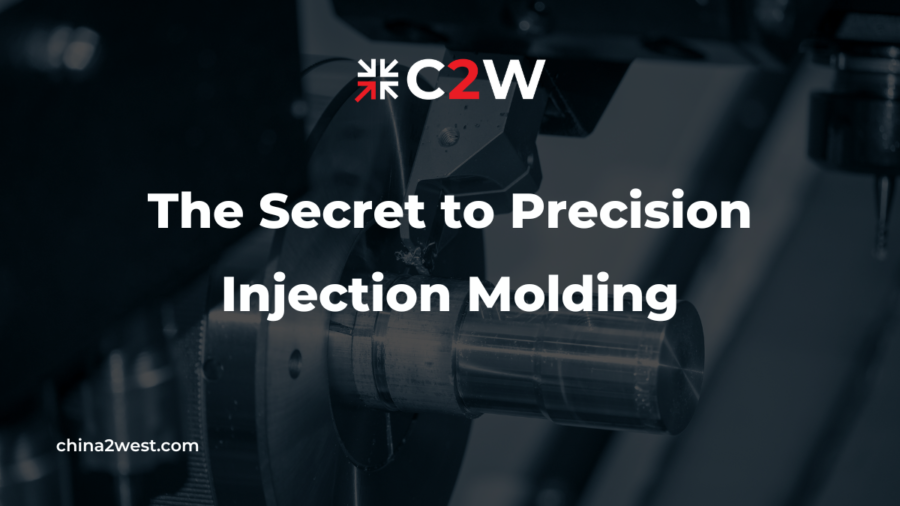Injection molding is a widely used manufacturing process that involves injecting molten plastic into a mold to produce a desired shape. This process is popular among manufacturers in China due to its efficiency and cost-effectiveness. However, the key to producing high-quality plastic parts with tight tolerances lies in precision. In this blog post, we will uncover the secret to achieving precision in injection molding and how it can benefit your business when manufacturing in China.
How Precision is Achieved in Injection Molding
Achieving precision in injection molding is a testament to the power and capability of this manufacturing process. It starts with careful design and engineering, where every detail is meticulously planned. The use of advanced software and tools allows manufacturers to create highly accurate molds, ensuring that each part is produced with the utmost precision.
The injection molding process itself also plays a crucial role in achieving precision. The molten material is injected into the mold under controlled conditions, ensuring that it fills every cavity and corner with uniformity. The temperature, pressure, and speed of the injection are carefully regulated to avoid any defects or inconsistencies in the final product.
Furthermore, manufacturers in China have embraced injection molding as a means to achieve precision at scale. With the ability to produce large quantities of parts in a short amount of time, manufacturers can ensure that each piece meets the same high-quality standards. This is particularly important in industries where tight tolerances and uniform dimensions are required for the products to function optimally.
The Role of Material Selection in Achieving Precision
Different materials have different characteristics, such as shrinkage rates, flowability, and temperature sensitivity. These factors can significantly affect the outcome of the injection molding process. By selecting the right material for a specific application, manufacturers can ensure that the parts produced meet the required specifications and tolerances.
For example, if you need small, intricate parts that require tight tolerances, then it may be a good idea to choose a material with low shrinkage rates and good dimensional stability. This would help prevent any distortions or warping during the cooling phase, resulting in precise and accurate parts.
Similarly, the flowability of the material is crucial in achieving precision. Materials with good flowability fill the mold cavity evenly, ensuring that there are no voids or incomplete areas in the final product. This is particularly important for parts with complex geometries or thin walls.
The Impact of Mold Design on Precision
Mold design plays a crucial role in ensuring the final product meets the desired specifications and tolerances. It determines the shape, size, and dimensional accuracy of the plastic parts being produced. A well-designed mold can greatly enhance the precision of the injection molding process and contribute to the overall quality of the finished product.
One important aspect of mold design is the consideration of part ejection. The mold should be designed in such a way that the plastic parts can be easily ejected without any damage or distortion. This ensures that the parts maintain their precise shape and dimensions, preventing any deviations from the original design.
Another factor to consider in mold design is the gating system. The gating system controls the flow of molten plastic into the mold cavity. It should be designed in a way that ensures uniform filling and proper packing of the plastic material. A well-designed gating system minimizes the risk of defects and contributes to the precision of the final product.
The Influence of Process Parameters on Precision
The process parameters during injection also play a crucial role in determining the precision of the final product. These process parameters include injection speed, injection pressure, temperature, and cooling time.
Injection speed determines the rate at which molten plastic enters the mold. High speeds can cause turbulence and uneven material distribution, while low speeds may lead to filling issues. Optimizing injection speed for each part is crucial for precision. Also, balancing injection pressure is essential for uniform filling and proper packing. Excessive pressure can result in flash, while insufficient pressure leads to incomplete filling. Maintaining the right pressure is vital for achieving precision in injection molding.
Properly heating the material within the correct temperature range can ensure optimal flowability and viscosity. Consistent temperature throughout the process prevents distortions and warping, contributing to the overall precision of the final product. Finally, cooling time is a critical process parameter. Proper cooling time allows the plastic to solidify and maintain its shape before being ejected from the mold. Insufficient cooling time can lead to part deformities, while excessive cooling time can result in increased production cycles and decreased efficiency. Finding the right balance in cooling time is essential for achieving precision.
The Value of Quality Control in Ensuring Precision
Precision in injection molding relies heavily on effective quality control measures. Quality control is the process of ensuring that each step of the injection molding process meets the desired standards and specifications. It plays a crucial role in achieving precision and producing high-quality plastic parts.
One key aspect of quality control in injection molding is thorough inspection and testing. This includes inspecting the mold before production to ensure it is in optimal condition and free from any defects that could compromise precision. It also involves inspecting the parts during and after production to identify any potential issues or deviations from the desired specifications. This allows for early detection and correction of any problems, minimizing the chances of producing faulty parts.
Furthermore, quality control measures involve implementing corrective actions and preventive measures. If any issues or deviations from the desired specifications are identified, immediate corrective actions should be taken to rectify the problem and prevent it from recurring in the future. This helps to maintain precision and improve the overall efficiency of the injection molding process.
Elevate Your Injection Molding with China 2 West
Precision in injection molding is vital for producing high-quality, consistent, and reliable plastic parts. It impacts product quality, cost efficiency, customer satisfaction, and compliance with industry standards. From the careful selection of materials and meticulous mold design to the precise control of process parameters and the implementation of rigorous quality control measures, each step contributes to the overall success of injection molding.
Are you ready to get started with your overseas injection molding with us? Reach out today to discuss your manufacturing needs and unlock the potential for precision in your production processes.


